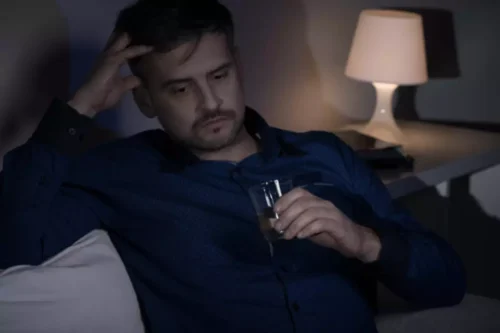
Substance use is not always an indication of addiction, although drug use carries numerous health and social risks in addition to the risk of addiction. A person can become dependent on a drug without being addicted, although the two often occur together. Addiction occurs when people continue to compulsively use a drug despite harmful consequences. There is still much debate about whether many behavioral addictions are “true” addictions. While shopping addiction, sex addiction, and exercise addiction are often noted as behavioral addictions, the DSM-5 does not officially recognize these as distinct disorders. The term addiction is used to describe compulsive drug-seeking behaviors that continue in spite of negative outcomes, but it is important to note that addiction is not considered an official diagnosis in the DSM-5.
- Signs and symptoms of inhalant use vary, depending on the substance.
- Substances and certain activities affect your brain, especially the reward center of your brain.
- Hepatic steatosis is a common complication of chronic alcohol use that results from cholesterol esters, phospholipids, and triglycerides formed ultimately from alcohol-induced ROS formation, altering lipid metabolism.
- The type of treatment a doctor recommends depends on the severity and stage of the addiction.
- It is used by clinicians to diagnose SUDs and help direct appropriate care, but it does not officially use the word “addiction” in its diagnostic criteria.
Drugs, Brains, and Behavior: The Science of Addiction
Sociodemographic risk factors related to poverty, geography, family, and peer groups also influence the onset and course of substance and non-substance addiction. Substances are drugs, chemicals or medications that have addiction potential. A substance addiction is a chronic condition that addictive drugs definition causes you to seek out and use substances despite harmful consequences. If your drug use is out of control or causing problems, get help.

Impulse Control Disorders and Addiction
- Addiction is considered a mental illness and can be treated similarly to other mental illnesses with therapy, medication and lifestyle changes.
- If you cannot reach a qualified professional by telephone to discuss the overdose, it would be prudent for you to take the overdosed person to the nearest hospital’s emergency department or medical facility.
- Deterrence depends on proper screening criteria for early signs of potential addiction and early childhood education.
- Exposure to chemicals, plants, and other toxic substances that can cause harm are called poisonings.
When you use opioids for pain for a long time, for example, you may develop tolerance and even physical dependence. In general, when narcotics are used under proper medical supervision, addiction happens in only a small percentage of people. When you spend time with a loved one or eat a delicious meal, your body releases a chemical called dopamine, which makes you feel pleasure. It becomes a cycle — you seek out these experiences because they reward you with good feelings. Withdrawal symptoms range in severity based on the type of substance and tolerance. For some substances, like opioids, the withdrawal symptoms are so severe that they create significant motivation to continue using them.
Dealing With Relapse
Addiction symptoms are those that indicate a person may be addicted to a substance. Withdrawal symptoms are those that occur when a person tries to stop using a substance. This article will define drug addiction, outline signs and symptoms, present possible causes, and provide treatment options. Drug addiction can start with experimental use of a recreational drug in social situations, and, for some people, the drug use becomes more frequent. For others, particularly with opioids, drug addiction begins when they take prescribed medicines or receive them from others who have prescriptions.

Pharmacists are also essential members of the interprofessional team. They may be the first to notice addictive behaviors if the addiction involves prescription drugs. They are also good resources for detoxification, assisting clinicians in treatment and rehab centers, verifying dosing, and checking for drug interactions. Addiction is a very complex condition with multiple episodes of reaching abstinence and falling into relapse; this is why an interprofessional team is vital in treatment.

If you have questions or concerns about taking Ativan, talk with your doctor. They can help determine whether the benefits of treatment outweigh the potential risks. It’s important to understand the potential risks of taking Ativan before you start treatment. Impulse control disorders include kleptomania (compulsion to steal), pyromania (compulsion to set fires), gambling and others. This definition of abuse can be applied to behaviors as well as substances. Drug abuse or abuse of a behavior describes use that harms the self or others.
Where can you get support for addiction?
The common withdrawal symptoms from hallucinogens are cravings, anxiety, and depression. These symptoms reflect the body’s and mind’s adaptation to hallucinogen use and vary in intensity depending on the frequency and duration of abuse. The imbalance in brain chemicals caused by hallucinogens makes the experience intensely pleasurable or meaningful for some users, encouraging continued use. Over time, these Sober living home neurochemical effects disrupt normal brain functioning, increasing susceptibility to psychological dependency. This cycle makes hallucinogens particularly appealing but also risky, as the brain’s natural processes struggle to reestablish equilibrium without the drug.
The short-term effects of hallucinogens include vivid hallucinations, emotional instability, and a sense of detachment from reality. The coexistence of both a mental health and a substance use disorder is referred to https://ecosoberhouse.com/ as co-occurring disorders. The National Institute for Mental Health’s Mental Health Information page has information about specific conditions and disorders as well as their symptoms.

Withdrawal from substance addiction
Deterrence depends on proper screening criteria for early signs of potential addiction and early childhood education. School programs like DARE represent a positive effort to curb drug use and experimentation. However, while education is most effective before the development of health problems, patient education has a place at any stage of addiction.
